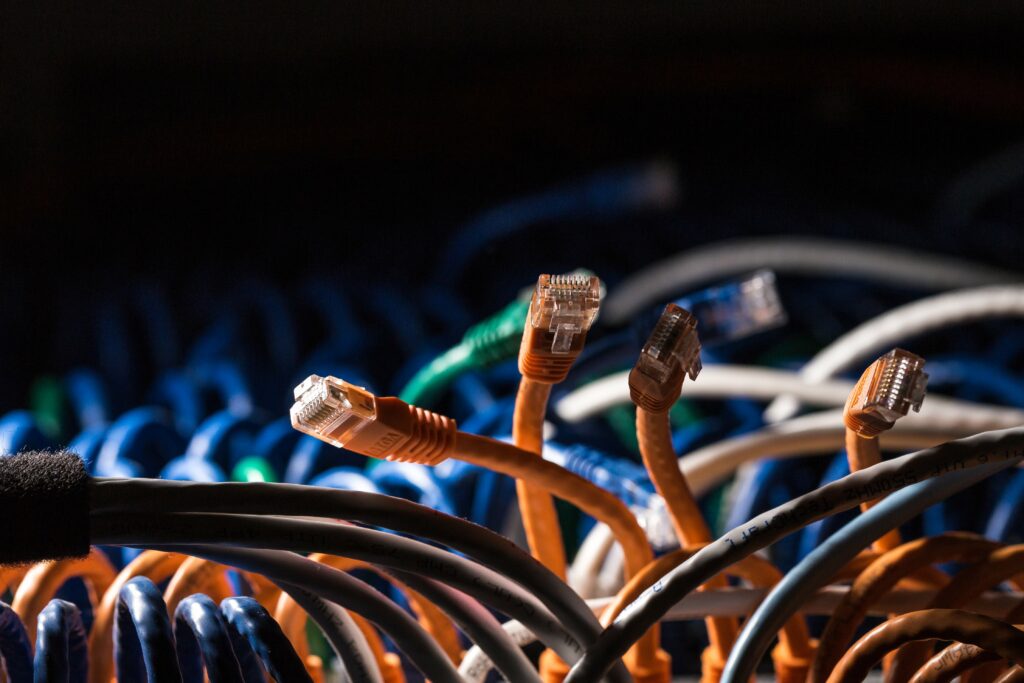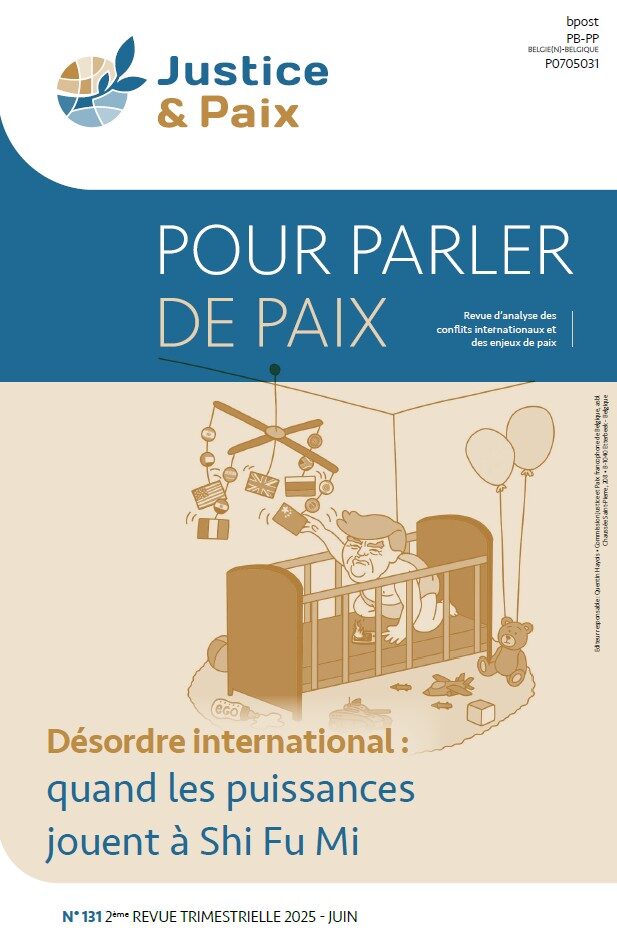At a time when all the world's great riches, Jeff Bezos, Elon Musk, Bill Gates are investing in research against aging or for increasing human capabilities and considering that today, the world tends to be governed by money, we can question these investment choices and the transhumanist thinking that runs through them.

Transhumanism aims to constantly improve human beings, but what will be the limits to these developments?
The development of technologies, biotechnologies and digital technology offers new opportunities in the life of human beings but also, in certain cases, a new way of being. It would then be possible to treat psychological disorders, depression, eating disorders, OCD, thanks to electrical implants inserted into our brain. Or again, the use of transplantation could be democratized with the arrival of artificial organs.
However, progress made in fields such as biotechnology and neuroscience, for example, promises the arrival of integrated technologies allowing human beings to see in the dark or no longer experience certain sensations such as fatigue or hunger. Becoming an augmented human being, or a post-human according to transhumanism, becomes the objective to achieve. In summary, to be humans who can live healthier, longer, become more intelligent, more efficient through these new technologies.
This perspective pushes us to question “Who are we?” and “What is a human being?” and “What will we accept to become?” ".[1]
When humans use techniques to improve their environment or themselves, it seems natural. Isn't this what humans have always done and what is the definition of progress? Yet when we talk about eradicating entire populations of insects (pests) or when we consider using gene drives to improve future generations of humans, this idea seems to bother us. This is a question of ethics. This is an essential question which is too often devalued in the face of the attraction of new discoveries and technologies.
Transhumanism, what is it? How far can we go? Would we need safeguards?
Transhumanism is considered a school of thought which advocates the use of science and technology in order to improve the human condition, particularly through its physical or mental capacities. According to transhumanism, old age, illness and even death are problems that new technologies can combat or resolve.
Transhumanism conveys the idea that increasing human capabilities is progress. The controversies then concern the imagination that we put behind this notion of progress.
This concept brings together different movements; on the one hand a transhumanism that we would call libertarian and which saw the light of day with the philosopher Max More in the 90s in the United States which refers to notions such as Darwinism or even eugenics. On the other hand, a more contemporary version of transhumanism which aims to make these human improvement techniques universal. This last version, the most widespread today, was born under the influence of the French engineer Jean Coutrot.[2]
The movement took on a more assertive dimension in the 1980s in California and its ideas were also found in art. It responds to a belief that technology is a source of happiness. The body is then seen as an imperfection to be repaired instead of being accepted as it is.
The advances sought by transhumanism use nanotechnologies and biotechnologies in a utopia of creating the “post-human”. How can we find the line between research that attempts to restore sight to blind people, make paralyzed people walk or stimulate the brain to combat Parkinson's disease and research that seeks to connect the human brain to the internet or to eradicate death?[3]
If the movement considers that the natural limits of humans and their degeneration are an obstacle to progress, we must ask a question of moral value about the preservation of natural systems, but also a practical question.
The advent of everything connected has also shown that this makes it more vulnerable to attacks, hacking or even bugs, whether it be technologies implanted in the human body or hospital or administration systems.
Could this augmentation of man by technology ultimately make him more vulnerable and dependent on his primary objective? Wouldn't access or lack of this type of technology to make oneself more efficient and more competitive accentuate inequalities within our society?
Who are the actors of transhumanism today?
If the first images that come to us seem to come from a science fiction film, transhumanism and its experiences are not the prerogative of cinematographic scenarios.
On June 15, the European Commission announced the establishment of eleven partnerships for funding worth 22 billion euros for its dual transition objective: ecological and digital. The link made between ecological transition and digital transition is already problematic. Indeed, the dazzling growth of digital technology is far from being the miracle solution to environmental problems. There hidden face of digital reveals armed conflicts, social conflicts and long-term environmental damage. However, Margrethe Vestagher, Executive Vice-President of the European Commission announces “technological tools, linked to artificial intelligence, data, robotics and others, which will allow us to achieve our environmental and climate objectives, in order to move towards a cleaner, healthier future. »[4].
Indeed, the Calico company, founded by Google, Elon Musk's Neuralink and the “Target Malaria” project set up by the Bill and Melinda Gates Foundation, prove that these reflections, these researches and these experiences are very current.
| Calico Company is a biotechnology company working on slowing down aging and associated diseases. Its goal is to allow humans to live as long as they could wish. The American Time asked following the launch of this company “Can Google solve death?” ". Calico differentiates itself from pharmaceutical laboratories and other biotechnology companies in that it develops research on technologies that aim for long-term change. |
| Neuralink is an American start-up that develops brain implants that will be directly connected to computers. This technology defined by the co-founder, Elon Musk, as a Fitbit[5] of the brain. This chip has, for example, the objective of restoring sight or mobility to people who will be equipped with it, but the founders also announce that it will aim to allow a connection with artificial intelligence. |
A new man: at what cost?
The question to ask is: if we have evolved this much since the prehistoric era, will humans of the future consider us “cavemen”?
Thierry Magnin recalls the importance of questioning the relationship between human beings and machines. Technosciences give human beings new potential. If they offer new perspectives to medicine and make it possible to combat certain diseases and disabilities, the question is then "What is the difference between the repaired human being[6] and the augmented human being? Increasing the capabilities of a healthy person is a very different process that deserves to stop and wonder. Increase, why? If human beings have always sought to increase their capabilities, for the first time, it is a question of touching the biological nature of the human being. What is the deeper meaning of increasing? What meaning do we give to our human destiny in this aim?
The temptation of all power and mastery is present in everyone, but our humanity is also in the recognition of our limits.
Marked by many nuances, transhumanism gives a vision of technosciences according to which they will save humans. It would be the duty of sciences to free the human condition from its determinisms, so that humans no longer have to fear any limits. Yet some currents deny it even to the point of death. Between surpassing one's limits and thinking of oneself without limits and no longer wanting any limits, there is a large gap which would therefore be bridgeable by technosciences. This omnipotence would then be individualistic and reserved for an elite. Doesn't denying the vulnerability of human beings amount to denying what makes them human? The growth of human beings is also what allows them to evolve; preventing growth would not amount to stagnation. Living things allow themselves to be modified by their environment and evolve between vulnerability and robustness. Technosciences focus everything on robustness.
| Quote from Pascale “the thinking reed”: “The greatness of man is great in that he knows himself to be miserable”. Man is a reed, the weakest in nature but he is thinking. |
This isn't about being technophobic. There is on the one hand, the technoscientist who will be interested in the functions of living things and on the other hand, the biologist who realizes the increasing complexity of living things, highlighting the importance of the psyche. on the biological. The context and experience will influence the functionalities of living things. The psyche therefore introduces complexity. Wouldn’t respecting the living mean respecting this complexity?
VSonclusion
How can we guarantee the use of technosciences in the service of humanity? Human beings' mastery of these tools begins with the choice they can make: rely less on the excessive sophistication of their environment and instead value more the robustness of our lifestyles and our human capabilities. The relationship between human beings and machines needs to be rethought; it is a theme that must be debated in the public space because it affects us all in our daily lives. Having control over these new technologies means being able to reclassify them as tools.
The danger of these technologies targeting a post-human is also their elitist character. Will we be able to ensure universal access to these allowing each individual, without discrimination, to access these functionalities or will they deepen the already present inequalities even more deeply?
Transhumanism remains a utopian or even positivist movement. The majority of recognized scientists do not adhere to the aims and statements of transhumanism. Nevertheless, this movement is interesting because of the questions it raises about our definition of progress and our control of its development.
We must therefore demand a democratic debate and the guarantee of a social approach around the development and financing of these new technologies.
Mila Gatti
[1] Thierry Magnin, “Be human, fully”, in the radio show Evening Discussions with Leili Anvar, France Culture, https://www.franceculture.fr/emissions/les-discussions-du-soir-avec-leili-anvar/etre-humain-pleinement
[2] Stanislas Deprez, A French history of transhumanism, the life of ideas, https://www.lefigaro.fr/vox/histoire/aux-origines-du-projet-transhumaniste-20200320
[3] The futura tech editorial team, “Transhumanism, what is it”, Future tech, https://www.futura-sciences.com/tech/definitions/technologie-transhumanisme-16985/
[4] https://www.actuia.com/actualite/la-commission-europeenne-lance-11-partenariats-pour-repondre-a-la-transition-ecologique-et-numerique/
[5] Fitbit is a connected watch allowing different functionalities including access to your data on your state of health (pulse, heart rate, temperature, oxygen saturation, respiratory rate)
[6] The mechanical meaning of this term relates to the way in which transhumanism thought perceives the human as a body or a mechanism to be maintained, repaired and improved.





